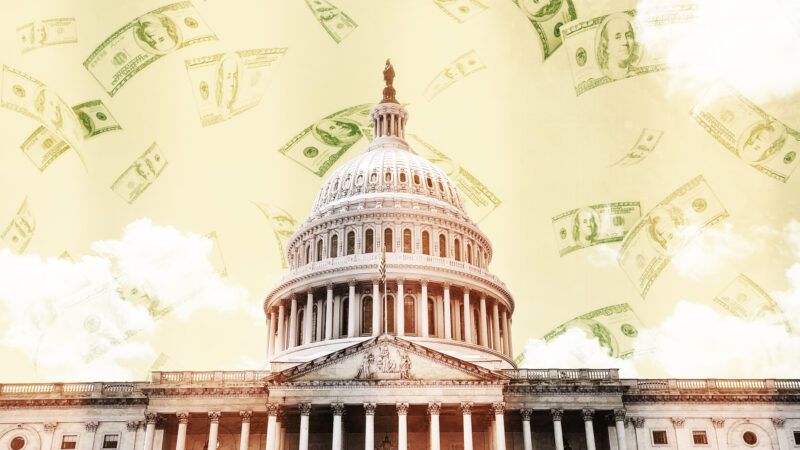Keeping These Tax Cuts Is a Bad, Expensive Idea
Everyone loves lower taxes, but cutting them without reducing spending is bad news for the national debt.

Extending the individual income tax portions of the Tax Cuts and Jobs Act (TCJA) is supposed to be a good thing, right? After all, who doesn't love lower taxes? However, data from the Congressional Budget Office (CBO) predicts that, without accompanying spending cuts, these tax cuts are going to cost the government.
If the cuts continue, it's possible that "the positive effects of lower taxes would be counteracted by the negative effects of higher debt," according to a Tuesday report from the Committee for a Responsible Federal Budget (CRFB).
"Despite claims that tax cuts pay for themselves," the CRFB adds, "analyses from across the political spectrum have found that the economic effects of extending the expiring parts of the Tax Cuts and Jobs Act (TCJA) would offset 1 to 14 percent of the revenue loss – falling well short of the 100 percent needed to pay for itself."
While the tax cuts would create an economic boost in the short term, increasing gross domestic product (GDP) by around 0.3 percent in 2027 and 2028, the CRFB predicts that the cuts will actually lower projected GDP by 0.08 percent by 2034. Further, the CBO's data shows that continuing TCJA tax cuts are likely to lead to increasing interest rates over the next decade.
While continuing the cuts "would produce about $90 billion of positive revenue feedback," according to the CRFB, "those higher interest rates would add $150 billion to the debt, more than counteracting the revenue gains."
And the CRFB isn't the only one sounding the alarm about extending these cuts without also reining in spending.
On the one hand, TCJA cuts "simplified taxes for many households by reducing their dependence on itemized deductions and their use of the alternative minimum tax (AMT)," Brookings Senior Fellow William G. Gale wrote earlier this year. "The bad news is that it was expensive: The TCJA will have raised federal deficits and debt by more than $2 trillion over its first 10 years according to the Congressional Budget Office. Forget the idea that the tax cut will pay for itself—that is nonsense."


Show Comments (88)